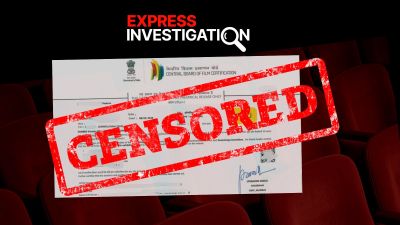Divestment dilemma: Investors lose Rs 14,100cr
While senior ministers in the Union Cabinet are lobbying and counter lobbying for and against disinvestment, investors seem to have paid a b...

While senior ministers in the Union Cabinet are lobbying and counter lobbying for and against disinvestment, investors seem to have paid a big price for investing in government companies.
In September alone, investors have lost a whopping Rs 14,100 crore in the stocks of public sector companies listed on the stock exchanges as market capitalisation declined steeply after the fiasco over the sell-off plan in HPCL and BPCL.
According to analysts, 46 PSUs accounted for 41 per cent of the fall in the total m-cap of the Bombay Stock Exchange, which shed Rs 34,300 crore or 5.97 per cent to Rs 5,39,650 crore during September from Rs 5,73,950 crore. ‘The fall in PSU stocks during the month was purely due to the postponement of disinvestment in HPCL and BPCL.
|
Sensex near 1-year low, but
PSU stocks recover |
|
|
Mumbai: All is not lost on the PSU stocks’ front. Battered government stocks attempted a moderate rally on Thursday even as the benchmark Sensex ended near a one-year low at 2938.06 on the Bombay Stock Exchange (BSE) on buying interest prompted by the Prime Minister A B Vajpayee’s stand in defence of divestment process. The market made a promising start with the Sensex opening higher at 2963.61 on optimism about a positive decision on disinvestment in the strategic oil sector after Vajpayee supported the government’s disinvestment policy while hitting out at the critics of reforms in PSUs. HPCL and BPCL which were battered after deferment of divestment in oil sector on September 7, attracted investors interest and closed with marked gains. Had it not been for fresh sell-off by FIIs, equities would have witnessed a firm trend, market sources said, adding that some operators too pressed heavy sales in key counters like RIL and HLL. ENS |
When investors realised that divestment in these two key PSUs are stuck, they sold their holdings,’ said BSE dealer Surendra Podar.
It may be recalled that on September 7, 2002, a high-level group of ministers decided to defer the proposal to divest government stake in BPCL and HPCL for a period of three months.
Dealers said this led to sustained selling pressure in PSU stocks as investors lost confidence in the government’s disinvestment programme. ‘The U-turn by the government has created doubts among investors about the seriousness of the government in privatisation,’ Podar said.
The BSE PSU Index lost 13.2% or 210.09 points to 1,379.23 in September from 1,589.32. ‘BPCL and HPCL were the biggest losers in m-cap. While senior politicians are fighting turf battles, investors have lost interest,’ said Pawan Dharnidharka, another BSE dealer, adding, ‘Defence Minister George Fernandes has gone on record saying that no investor has lost in PSU stocks and that the loss in market cap is only a notional loss. But look at the figures.’
HPCL market capitalisation plunged by 38.6% or Rs 3,581.63 crore to Rs 5,707 crore and BPCL 37.4% or Rs 3,085.5 crore to Rs 5,157 crore. Both accounted for around 50% of the fall in the m-cap of PSUs. Other state-run oil companies which shed m-cap were Indian Oil (down 15% to Rs 16,075.9 crore), Kochi Refineries (down 17.1% to Rs 456.2 crore) and Chennai Petroleum (down 11.45% to Rs 336.7 crore).
“This shows that government policies can create and destroy shareholder values,” said an analyst.
Other PSUs which lost m-cap in September were Neyveli Lignite (down 24.6% to Rs 2,986.32 crore), Sail (down 24.1% to Rs 2,664.11 crore), Nalco (down 21.8% to Rs 5,789.13 crore), MTNL (down 16% to Rs 6,923.7 crore), Bhel (down 9.9% to Rs 3,907.59 crore), Gail (down 9.45% to Rs 5,306.45 crore), SCI (down 7.41% to Rs 2,063.61 crore), SBI (down 4.86% to Rs 12,099.6 crore) and ONGC (down 3.45% to Rs 48,645.6 crore).



- 01
- 02
- 03
- 04
- 05




























